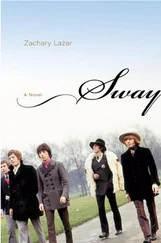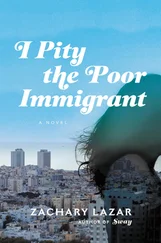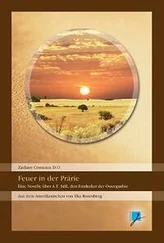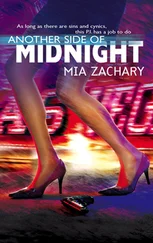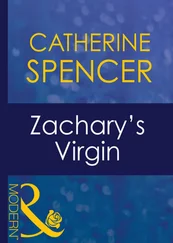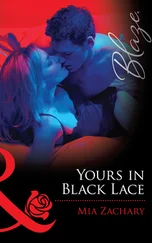I swallowed my pride and shot six weddings for her. She hated my photos and swore not to pay me because my stubbornness was “beyond belief.” Nothing of her “standard expectations” had been met. Her methods had not been applied at any of my weddings. The customers, however, loved my pictures and the monster didn’t fire me. She just held my money until “I learned how to take photographs” according to her manual. I shot five more weddings. After the last one she finally agreed to write me the check I needed so much. Just before she did, Carla Solomon suffered a massive aneurism in the restaurant of the Bellagio Hotel in Las Vegas, watching the water fountain show.
She died with her wig stuck in a plate of fried calamari.
*
The town looks deserted. I find the store I’m looking for. Its name is Orchard and it’s located on the only main street. I park in the scorched lot and enter the store. It’s cool inside. The prices are laughable compared to those in Los Angeles. I buy ten lemons for a dollar. Add a gallon of water. I move toward the register when I see the cherries. Big, red, and lots of them. I haven’t eaten cherries for years, I realize, and these look as if they have just been picked from the tree. I try one. My mouth waters from sweetness, coolness, and childhood nostalgia. I buy four pounds. The clerk is around thirty years old, pushing two hundred pounds, short, with peeled-off nail polish, a wedding ring, dark circles under her eyes, and a badge with the name “Melody” on it. She asks me what I’m going to do with so many lemons. I pause for a moment before answering:
“Lemonade.”
“You’re not from here.” She says, packing the fruit.
“No.”
“Huh. . and where are you from?”
“From far away.”
“It’s probably beautiful there.”
I take the bags. “It is.” She fixes a bleached strand of hair over her forehead and hands me the change, muttering, “It’s probably nice.”
I take the dollar thirty-six. “It’s nice.” I shove the money in my pocket. “Melody, is there a coffee shop somewhere around here?”
“A coffee shop?”
“A coffee shop. Where they serve espresso?”
“They only sell donuts here.” Her face somewhat brightens. “There’s no expresso here.”
“No espresso, huh?”
“Nope.”
“How about close by somewhere?”
“There’s a fancy coffee shop in Ramona. On Main and Seventh. They make expresso there.”
“Ramona?”
“Ramona. A little town nearby.”
“Where is Ramona?”
“Go straight on Main Street until it becomes 67th, you get out of Pamona and ten miles down is Ramona.”
“So, I leave Pamona, drive down 67th, and get to Ramona.”
“Yes, sir.”
“Thanks very much, Melody!”
“Sure thing!”
“Take care, Melody!” I’m just about to leave, but she points to my face.
“Does it hurt?”
“Excuse me?”
“Your face. . the bruise. . what’s it from?” She inquires with genuine compassion.
“Oh, this?” I touch the skin under my eye ever so slightly. “Nothing serious. I fell down the stairs.” Good girl, good person. I’d rather not think about her right now. I know that if I start thinking about her life in Pamona, about her no-fewer-than-three kids, about the husband with his wife-beater and a can of Budweiser in front of the big-ass flat screen, about her hidden bottle of vodka in the garage, about her Prozac. . There we g-o-o-o-o. . there goes my craziness again. I don’t care about Melody and her misery. I don’t care about Pamona and Ramona. I don’t care about any of this. I care about a double espresso. What a surprise, I’m angry again. Well, now, let’s eat a lot of red cherries. I get in my car, open the bag, set it on my lap, and start driving down the only street in the deserted town. I don’t eat — I shove cherries into my mouth, spitting pits all over.
*
Back to the Sunday paper, back to CAREERS, where I’d find two or three ads under the PHOTO section and whole pages with “WANTED” under PHARMA. Unwillingly, I started peeking at them. The job opportunities were abundant. All one needed was an appropriate education and several years of experience. After reading the ads more closely, I started noticing that for one of the occupations — Clinical Research Associate, known also as a “monitor”—there was a far more liberal attitude toward the required education and experience.
I sold two of my four Carl-Zeiss lenses, as well as five Nikkors, in order to buy a used Toyota.
I started searching the Internet and gathering information about a monitor’s duties. I acquainted myself with their experiences and the problems they encountered. I registered in their Internet forums and joined their discussions. I learned that a big pharmaceutical or biotechnological company invests an average of five billion dollars before a new drug developed in a lab reaches the market. Once a new heartburn drug, for example, has been discovered and developed by scientists, and enough satisfactory information has been gathered on its quality and non-clinical safety, then the FDA may grant approval for a clinical trial involving humans. The company developing the drug (also called the “sponsor”) then outsources the job to a clinical research organization, also called the “investigator.” The investigator, over the next five or six years, recruits volunteers with predetermined characteristics, administers the treatment, and collects data on the patients’ health. Some of the volunteers are treated with the new drug, some are given a placebo, some are assigned randomly, some studies are blinded, some double-blinded, so even the researchers don’t know what is a placebo and what is not. Then the data is sent back to the sponsor. The sponsor analyzes it and decides to go ahead with the drug or not. The monitors work for the investigators. The monitors oversee the clinical trial. The monitors spend half their days in hospitals comparing data collected from the subjects of the study, checking if signatures are in the right places, making sure names match. Monitors have the easiest and most boring job in the CAREERS section in the paper. They also make between fifty and a hundred and fifty thousand a year.
I sold another Carl-Zeiss and one Nikon body. California swallowed up my equipment, plans, dreams, and ideas one by one. California cooled down my eagerness, sucked up my energy, and in just a few months stripped me down to despair.
California — it became clear — had no use for me or my images. What California needed was the next drug.
*
I drive out of Pamona. Large stratus clouds, blue skies, dried-out trees, hills in yellow and brown, cacti, round rocks. San Pasqual Valley — the only battle the Mexicans won in the Mexican-American War — took place right here. Only about twenty people from both sides were killed in the battle. Man, they must have run up and down these stony hills like goats. Rifles must have fired, blood must have turned black on these very rocks, vultures must have circled up in the blue sky. I pass an ostrich farm and enter Ramona. I find the coffee shop. It’s called Packard’s and it turns out to be a trailer with an awning over the sidewalk. I go in. It is cramped and unbearably hot. There’s an old espresso machine. Behind the counter, a girl is filing her nails. I ask how much a double espresso is.
“The espresso is a dollar fifty, so — three dollars for two.”
“I don’t want two espressos, just one double.”
“I still have to run two. Two times one-fifty is three dollars.”
I take a deep breath and try again, calmly.
“You got a manager here?”
Читать дальше




